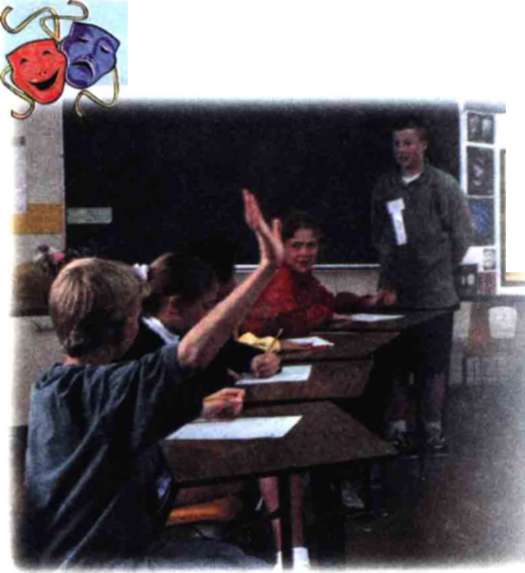|
|
1. Change the following statements from reported speech into direct speech.
Example: George said that everything was boring at school that day "Everything is boring at school today," said George.
1. Alec told me that he usually spent his time doing chemical experiments at his father's job.
2. Robert said that he had chosen the most important items in the text.
3. Linda said she was going to use the Internet.
4. The teacher said that all the pupils had to wear a uniform.
5. An American schoolboy told us that at his school pupils didn't have to wear a uniform.
6. Our class mistress told us that we would have a meeting on Friday.
7. Alice said she was doing well in a lot of subjects.
8. Peter said to Melinda that he didn't like school much.
2. Agree or disagree with the reasons why children go to school.
introduces you to different sorts of people, helps you make your own decisions, helps you understand yourself better, makes you polite and well behaved, introduces you to new science ideas, helps you use your free time sensibly, trains you for a future job. teaches you moral values, teaches you about our country, its history, culture etc.
3. Work in groups of four. One of you is a teacher, the others are pupils.
Teacher, ask your pupils these questions:
• Why were you talking in class?
• Why haven't you done your homework?
• Why did you walk out of the class?
• Where is your pen?
• Why were you eating in class?
• Why were you looking out of the window?
• Why were you absent from school yesterday?
• Why did you copy the Maths test? Pupils, prepare some good excuses!



|
|


